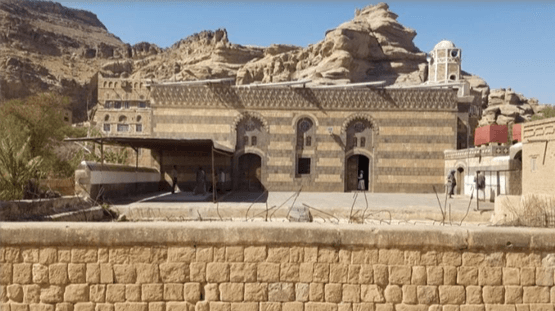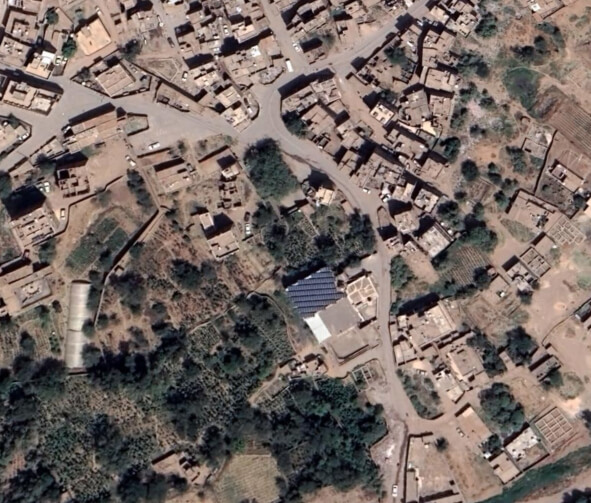
Al-Rawḍ Mosque – Hamdān – Ṣan‘ā’
همدان -الروض مسجد
Monument description
Al-Rawd village is located northwest of the capital Sana‘a, at the bottom of Wadi Dhaher. Al-Hajri mentions that it is one of the beauties of Imam Al-Mutawakkil in God Yahya ibn Al-Imam Al-Mansur Billah Muhammad ibn Yahya Hamid Al-Din, and he completed its construction in 1351 A.H.

Architectural and cultural value
Construction style and built date: The layout of this Mosque belongs to the style of mosques with a Prayer Hall covered by a flat roof of wooden beams resting directly on the capitals of stone columns and arches. This monument was built in the year 1351 AH.
Components of the Mosque: Prayer Hall, Minaret, righteousness, Berkah, Ablution Units, and traditional baths.
- Justifications for intervention:
- 1 – Neglecting the competent authorities in carrying out periodic restoration work due to the lack of budgets for the repairs.
2 – Preserving the monument from disappearance and stopping the damage caused to the monument from expanding.
3 – Restoration of the damage to the mosque resulting from the flight strikes of the southern part of the old city of Sana’a.
4 – Contribute to the restoration of damaged monuments in a proper manner in order to keep Old Sana’a on the UNESCO list..
- Monument conditions:
- Damages due to the age of the building and time factors, wrong repairs, previous poor restoration, and leakage into the mosque, and these damages create:
- 1. Cracking of the Qadad in the water pool and surfaces
- 2. Cracks on the roof of the Prayer Hall
- 3. Moisture and salinity in the foundations
- 4. Collapse of some parts of the stone walls.
- Treatment:
- – Restoration and re-layer Al-Qudad in the affected places. Re-dressing and making a coat to drain rainwater
- – Restoration and re-layer Al-Qudad in the affected places. Re-dressing and making a coat to drain rainwater
- – Reconstruct the dilapidated wall• Stop longitudinal cracks
- – Treating damaged foundations and solving the problem of moisture
- – Treating roofs and preventing rainwater intrusion.

Countries










